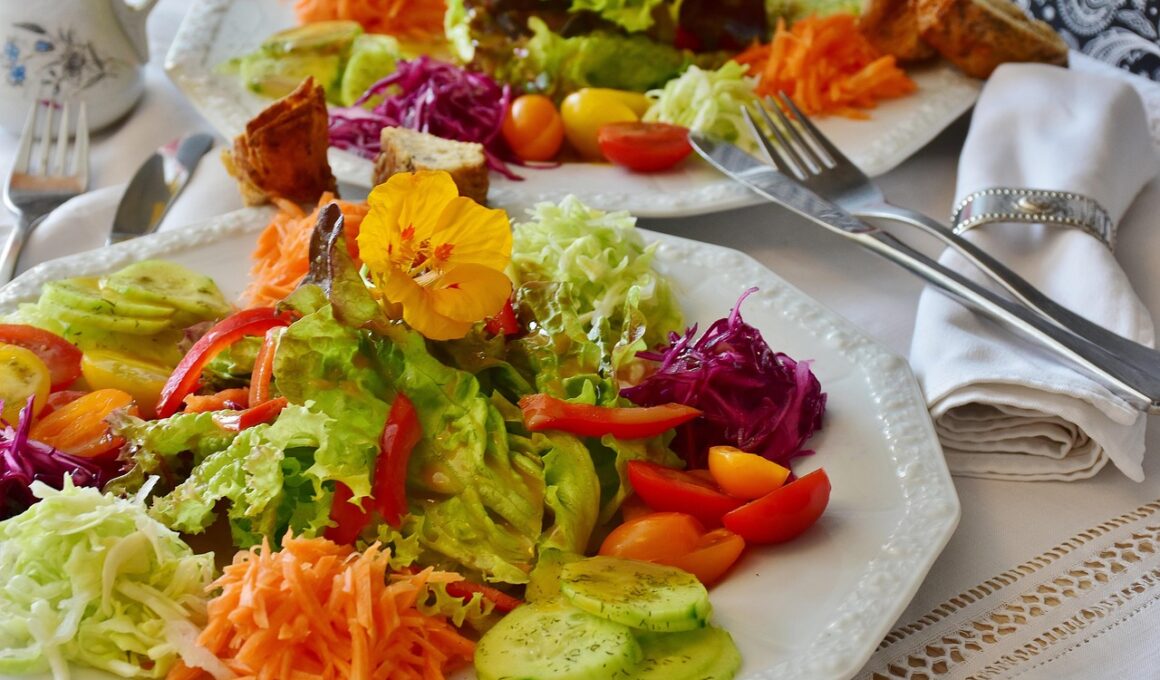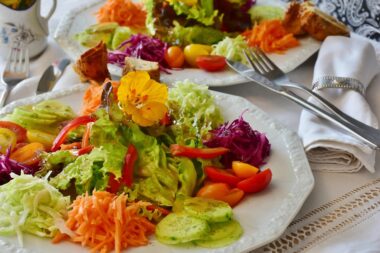10 Essential Meal Planning Tips for Effective Weight Loss
When embarking on a weight loss journey, effective meal planning is crucial for reaching your goals while ensuring you maintain a balanced diet. One of the first tips is to establish a weekly meal schedule. This allows you to allocate specific days for different meals, preventing the last-minute decisions that often lead to unhealthy food choices. You can also streamline your grocery shopping by creating a well-defined shopping list based on your meal plan. This keeps you focused and minimizes impulse purchases, which is especially important for weight management. Another essential tip is to incorporate a variety of foods in your meal plan, including lean proteins, whole grains, fruits, and vegetables. This diversity not only makes meals more exciting but also ensures you’re receiving all necessary nutrients. Keep portion sizes in mind as well; even healthy meals can lead to weight gain if eaten in large quantities over time. By planning your meals ahead and prepping them in advance, you will have a much easier time sticking to your dietary goals while enjoying delicious, healthy foods. Consistency is key to successful weight loss and meal planning helps you achieve it.
Choosing the Right Ingredients
Choosing the right ingredients is fundamental to effective meal preparation and planning. A good practice is to focus on fresh, seasonal produce as these not only enhance flavor but are often more nutrient-dense and affordable. Always seek out lean protein sources, such as chicken, turkey, fish, beans, and legumes. Incorporating healthy fats, like avocados, nuts, and olive oil will also keep your meals satisfying and nourishing. Remember to read labels to avoid added sugars and unhealthy fats; these can easily derail your weight loss efforts. To maintain variety in your diet, try to use different cooking methods like grilling, baking, and steaming. This keeps meals fresh and exciting while preventing boredom with your food choices. An important part of planning is ensuring you stock a balanced pantry with whole grains like quinoa, brown rice, and whole grain pasta, along with canned vegetables and low-sodium soups. Frozen fruits and vegetables can also be beneficial, serving as convenient options for meals while often retaining nutrients. Overall, smart ingredient choices will not only aid in weight loss but also pave the way for a healthier lifestyle over time.
One effective strategy for weight loss meal planning is batch cooking. This involves preparing larger portions of meals at once and storing them for later use. It saves both time and effort during the week, allowing you to easily stay on track with your eating habits. When batch cooking, select versatile ingredients that can be used in multiple recipes, such as roasted chicken, quinoa, and steamed vegetables. These can be transformed into various dishes throughout the week, keeping meals interesting. Invest in good quality storage containers to keep your meals fresh and organized. After cooking, simply portion out meals for lunch or dinner and freeze extras for future use. Additionally, consider making a variety of sauces, marinades, and dressings to enhance the flavor profile of your basic dishes. This simple tip can make a significant difference in keeping your meals exciting. Furthermore, always remember to label your containers with the meal name and date, so you know exactly what you’re eating and when it was prepared. By incorporating batch cooking into your meal plan, you maximize efficiency and support your weight loss goals effortlessly.
To effectively plan meals and promote weight loss, scheduling time for meal prep is paramount. Allocate specific time each week, perhaps Sunday afternoons or evenings, to focus on preparing your meals. During this time, you can chop vegetables, marinate proteins, and cook grains in advance. This planned approach will significantly reduce the temptation to grab unhealthy snacks or fast food during busy weekdays. Consider making a weekly ritual around meal prep; making it enjoyable can help you stay committed. Play your favorite music or invite a friend to join you. When meals are prepped ahead, mornings become less stressful—they can simply be grabbed and heated before heading out. A well-structured meal prep day allows you to be creative while ensuring that you’re sticking to your meal plan. Use various cooking techniques for food variety, like roasting one batch of vegetables while sautéing others. Additionally, you could prep healthy snacks in individual bags for nutrition on the go. Scheduling meal prep not only supports weight management but fosters a conscious eating habit that can positively influence your relationship with food.
The Importance of Smart Snacking
While planning your meals, don’t forget the importance of including healthy snacks. Clever snacking can actually help you lose weight rather than hinder your efforts. Having pre-planned snacks makes it minorly easier to resist unhealthy options throughout the day. Incorporate nutrient-dense snacks such as baby carrots, sliced apple with almond butter, or Greek yogurt with berries into your regimen. These options provide energy and satisfy cravings without the empty calories found in processed snacks. Preparing portion-controlled bags for the snacks you prefer aids in practicing moderation effectively. If you indulge occasionally, opt for something light; a handful of nuts or air-popped popcorn can serve as healthier alternatives. Remember to keep some snacks nearby while at work or during travel to avoid hunger pangs; this can prevent reaching for high-calorie junk food. Planning snacks helps you maintain your blood sugar levels and keeps metabolism functioning optimally, both essential for weight loss. When it comes to snacking, make it count by choosing foods that are not only enjoyable but also provide nutritional benefits throughout your weight loss journey.
Another essential component of meal planning includes incorporating mindful eating practices into your routines. Paying attention to the food you’re consuming plays a significant role in successful weight management. When enjoying meals, minimize distractions, such as television or smartphones. This practice allows you to savor flavors, textures, and aromas, ultimately leading to an enhanced eating experience that promotes satisfaction and fullness. Eating slowly as you focus on bites encourages your brain to register hunger and fullness cues more effectively. Moreover, take time to appreciate what you’ve prepared and the nutrition it provides. By being aware, you can make a conscious effort to stop eating when you feel satisfied rather than overeating. Mindful eating fosters a more profound connection between you and your meals. Carry it through into the planning phase by selecting meals that you genuinely enjoy and make you feel good post-meal. Integrate this practice into snack times too. This approach enriches your eating patterns and strongly contributes to successful weight loss while evolving your overall relationship with food, turning it into an enjoyable experience.
Tracking Progress and Adjustments
Tracking your weight loss progress is crucial for understanding the effectiveness of your meal planning strategies. Implementing a food journal or a mobile app can help you monitor what you eat, portion sizes, and overall caloric intake. Keep an eye on your mood and energy levels; these can also help evaluate how certain food choices affect your day-to-day experience. Regularly assessing your food intake allows you to identify patterns that either hinder or support your journey towards weight loss. Additionally, if you notice stagnation in your progress, it may be time to reevaluate your meal plan. Consider testing different combinations of foods or altering your portion sizes to find the best fit for your body. Consult your meal plan weekly to refine it according to your personal preferences or lifestyle changes. Engaging with a nutritionist or joining a weight loss community can also provide valuable feedback and fresh insights. By taking these steps to track progress and making necessary adjustments, you allow for sustainable weight loss that aligns with your health goals, giving you the best chance of success in the long term.
In summary, effective meal planning is an invaluable tool that supports your weight loss aspirations. It requires dedication to the process, but the rewards truly justify the effort. By establishing a meal schedule, being mindful of ingredient choices, embracing batch cooking, and including healthy snacks, you set yourself up for success. Scheduling meal prep, adopting mindful eating practices, and tracking your progress further reinforce the effectiveness of your meal planning strategies. Moreover, it’s important to remain flexible with your plan. Life can present surprises, and sometimes adjustments are necessary. That said, maintaining consistency is essential; sticking to your meal plan will help keep unhealthy eating habits at bay. Celebrate smaller accomplishments along the way, which will create positive momentum and encourage further commitment to your health journey. Ultimately, meal planning fosters healthier eating habits while making the weight loss process more manageable and enjoyable. Harness the above strategies as your blueprint, adapting them according to your own needs, and watch your progress unfold with a healthier relationship with food and increased vitality.





